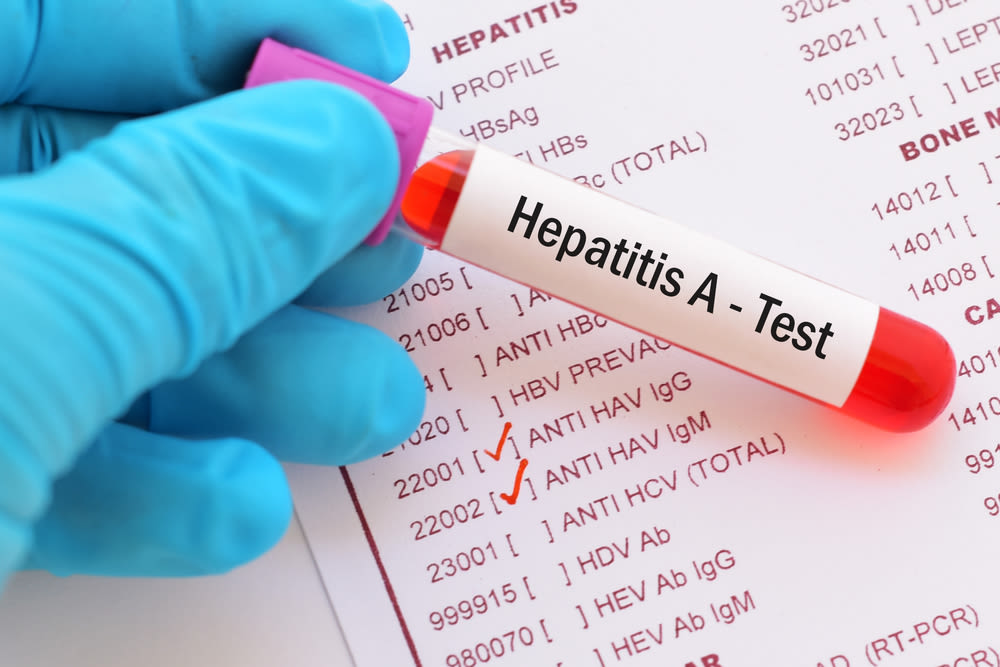Sarasota’s Hep A Outbreak: What You Need to Know

In any given year, Sarasota County has between three and five cases of hepatitis A. So far in 2019, there have been 17.
Image: Shutterstock
In any given year, Sarasota County has between three and five cases of hepatitis A. So far in 2019, there have been 17. “If it holds true to what we’re seeing in other places, we expect to see more,” says epidemiologist Michael Drennon, the Disease Intervention Program Services Program Manager for the Florida Department of Health (DOH) in Sarasota County.
Larger counties like Pinellas, Pasco and Hillsborough also have been experiencing similar upticks in hepatitis A this year. Officials don’t have a reason for the outbreak, but they’re trying to manage it through education and outreach.
The most susceptible communities, by far, are homeless people and those who abuse drugs—any drugs, not just intravenous. Southern California experienced a similar outbreak that moved through its transient population in 2016.
“Hep A is a fecal/oral virus that shows up in a person’s stool,” says Drennon. “Hand hygiene is key in reducing transmission. The homeless and drug abusers don’t always have access to adequate hygiene, or just aren’t using it.”
Symptoms include jaundice (yellowing of the skin and the whites of the eyes), lethargy, sometimes diarrhea and abdominal cramps, and dark urine. (Some carriers may be asymptomatic.) After 10 to 14 days, most people recover.
Like other forms of the hepatitis virus, hep A affects the liver, so those with liver conditions or compromised immune systems may be vulnerable to more severe effects.
There is a highly effective vaccine for hepatitis A, but because the disease is concentrated among the high-risk population, the DOH hasn’t actively recommended it except for people who are traveling internationally. “It’s an excellent vaccine,” says Drennon. “After two doses, most people are 98 percent protected and have lifelong immunity.”
Hepatitis A is one of about 100 reportable diseases in Florida, meaning that physicians and other caregivers are required to report Hep A cases to the Department of Health. Therefore, officials believe these numbers accurately represent incidences of the disease within the population, rather than an anomaly of reporting.
To combat the spread of the disease, the health department is working closely with other county officials and with organizations that work directly with the homeless and drug users, including inpatient and outpatient rehab facilities. Education is key, says Drennon. “It’s a preventable disease.” Outreach efforts include providing information and offering the hepatitis vaccine, which is voluntary.
“We’re not getting 100 percent [vaccination rates among the at-risk population],” says Drennon. “Because they don’t like needles, or they don’t trust us, or whatever their reason.”
“Like any disease that’s spread through this route—including salmonella and E. Coli—it’s fairly uncommon to see it spread widely beyond the populations at risk,” says Drennon. “Surely people in the restaurant industry should be aware of it.” But even in a restaurant setting, he adds, hygiene practices limit transmission.
“The best outcome now will be if people are receptive to outreach,” he says. “Once they can’t get it, they can’t spread it. Eventually we’ll get ahead of it.”
If you have questions or concerns regarding hepatitis A, the Department of Health encourages you to call (941) 861-2900 and ask for immunization information.
